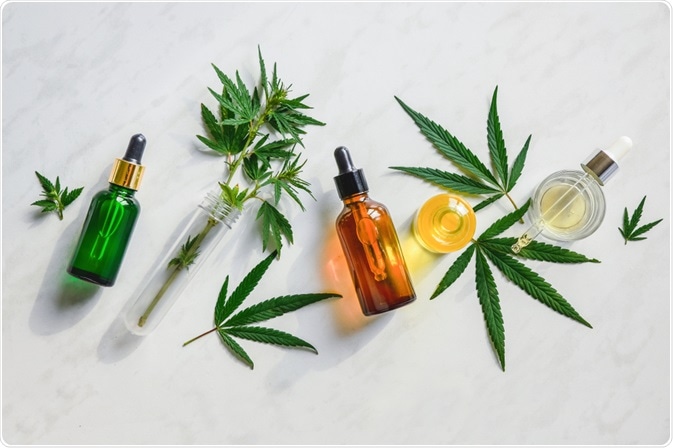If you’re new to the world of cannabinoids, or if you’ve only really done research on the common ones like CBD and THC, you might be entirely unaware of how important CBGA is to the entire cannabinoid ecosystem at large.
Many scientists even go so far as to call CBGA the mother of all other cannabinoids. That’s a pretty big thing to say about any specific chemical compound, and would most definitely imply that the rest of the cannabinoids wouldn’t be able to exist if CBGA didn’t exist. Could this be true?
It is, after all, a pretty big claim. To say that a single chemical is responsible for the dozens if not hundreds of other cannabinoids that exist, and this claim is coming from the top experts in the field. So that means that they have to have something to back that up, right?
We’ve decided to tackle this question ourselves, and by documenting our research here we’re able to help spread this knowledge around to anyone else that might stumble upon this article out of pure curiosity. Let’s take a look at the information here and see what it means for CBGA to be the mother of all cannabinoids.
Beginning with the Basics
The study of cannabinoids in general takes a lot of background knowledge. Teams that are studying these chemical compounds often need to have people that specialize in:
- Chemistry
- Biochemistry
- Neuroscience
- Botany
- Pharmacology
- Biology
Of course, not every study on cannabinoids has experts from each of these fields, but these are the fields that study cannabinoids in detail. There are a lot of experts that have to study this in a scientific setting, which means that we definitely need to cover some basic vocabulary before we get into the thick of it.
What is a Cannabinoid?
First thing’s first, do you know what a cannabinoid is? Of course, if you use CBD products you probably have heard the word tossed around at the very least, but do you actually understand what a cannabinoid is? If so, fantastic. If not, we’re about to break it down for you.
A cannabinoid is a naturally occurring chemical compound that is found in the cannabis plant, known by its scientific name as Cannabis Sativa L. Though many consumers will grow cannabis using CBD or THC-rich strains from online retailers like Zamnesia, there are a variety of cannabinoids that occur in cannabis besides these two popular cannabinoids.
At this point in time, we’ve discovered over a hundred of them. Each has different effects and does different things both within the plant and within our bodies. Not everything that is found in cannabis is a cannabinoid, but there are certainly a lot of them that naturally occur in different levels.
You can also find terpenes in cannabis, which are things that also naturally occur in a whole lot of other things. They have their own supposed therapeutic effects, for example, terpenes are what is believed to give lavender tea its relaxing effect. We don’t have time to get into those in detail, but there are plenty of resources on those available.
A Bit of Chemistry Vocab
As you may have already gathered, speaking about cannabinoids requires a basic understanding of some chemistry terms. Some of our readers are probably well ahead of what we’re about to cover, but it’s important to make sure that we explain ourselves as best we can.
There is really only one important term to make sure that you understand for this article, and that term is precursor. Precursors are incredibly important for chemistry, and understanding this term will ensure that you better understand this article.
A precursor, in short, is a chemical compound that breaks down into another chemical compound due to some complicated chemical reaction. In the world of chemistry, there are a lot of precursors, and there has to be because without chemicals breaking down there wouldn’t be any of the more complicated chemicals.
Let’s look at a pretty common real-world example to make sure that you fully understand the concept. When you make a cup of coffee, you have to put the coffee grounds into the filter (or however you personally brew coffee) and then hot water is poured over the ground to brew the coffee.
Once this process is done, you have yourself a nice, hot cup of coffee to help you get through whatever the day has for you. This serves as an excellent metaphor for precursors and is actually as close to a perfect metaphor as we can get for our purposes.
The coffee grounds, in this case, would be the precursor. The act of brewing the coffee with hot water is the chemical reaction that breaks down the precursor, and the piping hot cup of coffee is the end result. This isn’t exactly how it works, but it’s close enough to make sure you understand what we’re about to drop on you.
Is CBGA the Mother of All Cannabinoids or is that Rubbish?
Is there really anything to the claim that CBGA is the mother of all cannabinoids? What would possibly make scientists make such a bold claim? They’ve done a lot more research than we have here, so there’s a good chance that they know what they’re talking about.
So, what makes CBGA the mother of all cannabinoids? Well, it’s heavily believed that CBGA is the precursor of every other cannabinoid. That means that sometime during a chemical reaction, CBGA breaks down into every other cannabinoid.
The way that this happens is… complicated, to say the least. These chemical reactions happen on a scale that humans were only somewhat recently able to observe and if we were to cover the chemical reactions that make this possible, we’d need to get our bachelor’s in chemistry and then figure out a way that we could communicate all of that information to you.
Many scientists have traced back the origins of the cannabinoids that they study back to CBGA. Everything from CBA to CBZ can be traced back to CBGA. That’s a little play on words, by the way, there are no cannabinoids called CBA and CBZ, in case that wasn’t clear.
The science behind this is pretty solid and you can definitely check into it yourself if you want to read through scientific journals on the matter. Just be warned, scientific journals won’t be as nice as we are about making sure you understand the words that are being used.
Does CBGA Have Any Therapeutic Properties of Its Own?
We’ve found that one of the most commonly asked questions after someone finds out that CBGA is the mother of all cannabinoids is if it has its own therapeutic properties. It’s a reasonable question if you think about it.
Most cannabinoids have some sort of alleged therapeutic benefits. For example, CBD is believed to help with things like:

- Relaxation.
- Relief from discomfort.
- Increased mobility.
- More restful sleep.
- Improved moods.
- Calmness
With all of those supposed benefits from just CBD, it seems like it would follow that the chemical compound that is responsible for the existence of the rest of the cannabinoids would be able to provide some therapeutic benefits, if not even better therapeutic benefits than the ones provided by CBD and the lot.
Well, this is where things get kind of tricky. There hasn’t been enough scientific study done on CBGA to say for sure if there are any therapeutic effects or not. In fact, we haven’t even been able to find claims that would suggest any therapeutic benefits for CBGA at all.
It is pretty interesting to us that the mother of all cannabinoids doesn’t have any claims of therapeutic help, but we don’t have the scientific literacy to be able to get to the bottom of that. That also happens to be the tip of the iceberg of weirdness here.
Now, keep in mind, research on CBGA, in general, has been limited, to say the least. There needs to be hundreds more studies done on this cannabinoid before the scientific community will be ready to come to a consensus on the matter, so don’t go out doing anything crazy with what we’re about to tell you.
With that being said, there are a few studies that suggest that CBGA could have some pretty incredible medical applications. The science isn’t sound enough to say for sure if these effects are universal and if you have a serious medical condition you’re still better off seeing a doctor. For all we know at this point in time, these effects could just be strokes of mad luck.
Learning More About Cannabinoids
The world of cannabis is most certainly an interesting one. There is a lot to know about this topic, and we as a species are learning more about it every single day. Scientists are working tirelessly to crack the secrets of the compounds that are found within cannabis.
That being said, from what we do know about cannabinoids like CBD a lot of the world is pretty hopeful about what science will say on the matter. Until then, we all wait with bated breath.







